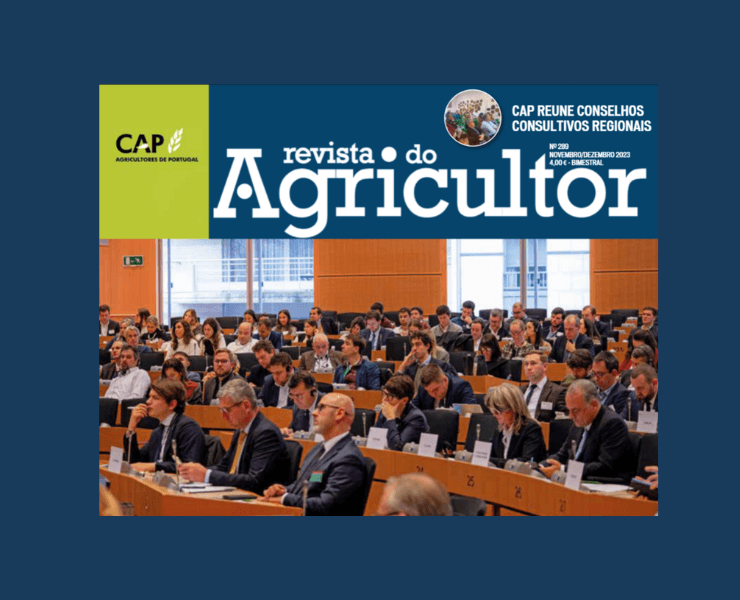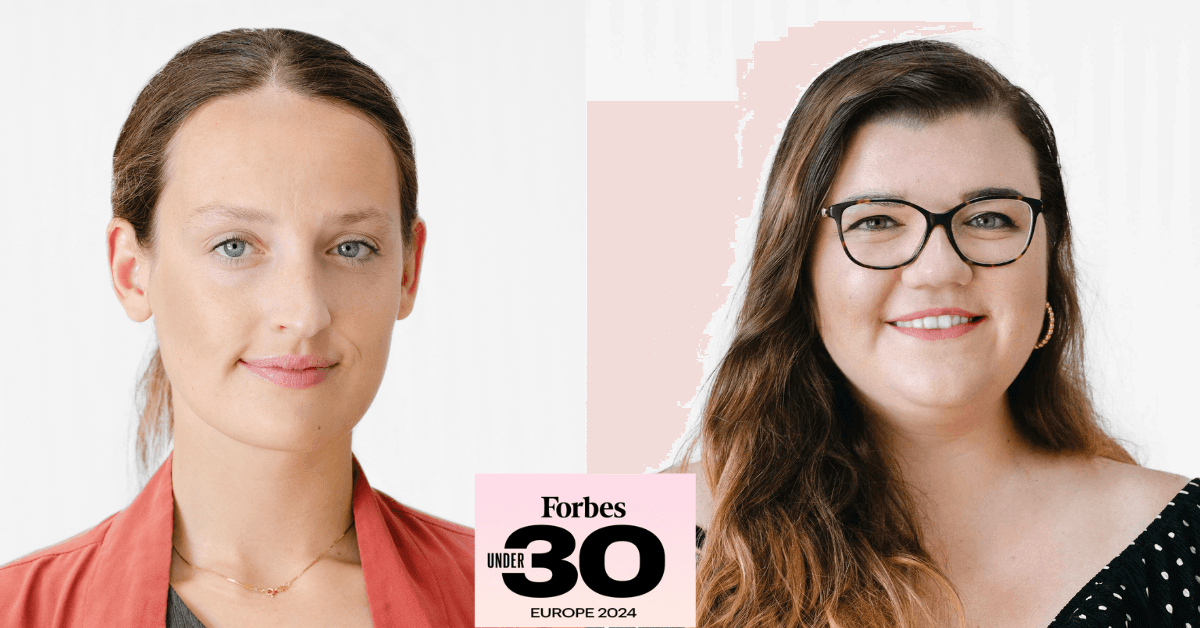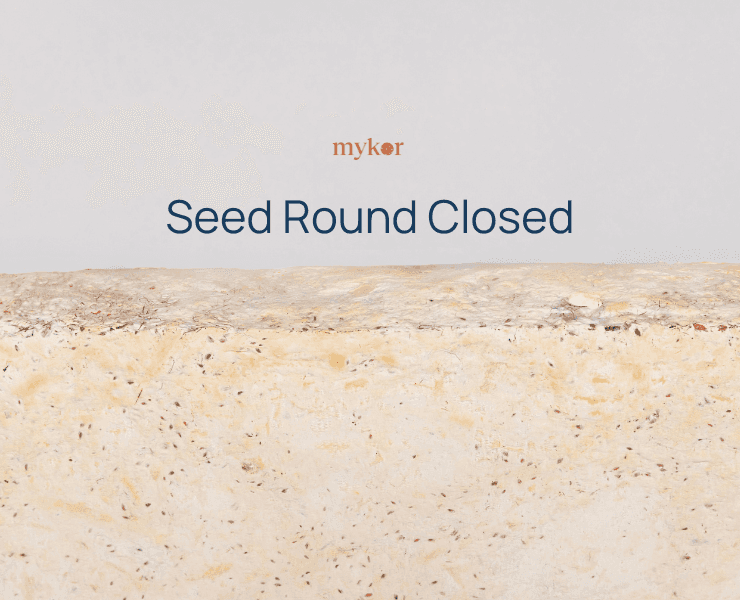January 4, 2024
News
Biomass for Construction - Article for Revista do Agricultor
Mykor manufactures insulation made from industrial residues, mycelium and green chemistry to decarbonise the construction industry.
Company purpose and founders
11% of worldwide carbon emissions come from building materials manufacturing. Mykor’s mission is to decarbonise the construction industry by developing low-carbon materials.
Mykor’s founders, Olivia Page and Valentina Dipietro, bring to the table their complementary skills: Olivia’s architectural understanding of building materials and Valentina's product design and material development experience. In 2021, they founded Mykor to address the extensive market need for carbon-sequestering construction insulation.
The company’s R&D team is based in the U.K. and its pilot factory is in Portugal.
Our prime sourced materials
At Mykor, as part of our founding principle and commitment to sustainable and carbon-neutral materials, we are utilising and redefining residues. Converting otherwise burnt or neglected materials to create high-value composites for much-needed green insulation. We salvage residues from the paper industry in Portugal, which has incredible properties both in its lignocellulosic composition which allows for fungal digestion, and in its structure which acts as a scaffold for the growth of low-density composites.
We harness an agricultural byproduct, frequently overlooked, typically sold to farmers by major brewing companies or undervalorised by smaller enterprises to apply this in an innovative construction material. This byproduct, brewer's spent grain, holds substantial value in its materials. Brewer's spent grain is naturally protein-rich and full of sugars as well as other micronutrients which enhance mycelial health and make for better resultant materials.
Another interesting waste stream is the high protein wastes found in spent yeast. This is a valuable resource for the healthy growth of mycelium and subsequently highly performing natural insulation materials. In addition to organic materials salvaged from waste sources industrial wastes such as gesso from construction waste and even difficult-to-process residues from the mining industry can be utilised by fungi to transform into materials of high value, saving energy and reducing toxic wastes.
Fungi have long been controllers of the world's ecosystems, degrading biomass and converting it into physically available nutrients for the world around it (see Myco-remediation). Here at Mykor, we utilise these processes to help decarbonise the construction industry. Filamentous fungi's natural ability to colonise and degrade various types of biomass allows us to make use of otherwise disregarded materials. In turn, shaping them into high-performing products which showcase the physical characteristics of mycelium, such as high strength, water resistance and biocompatibility. Finally, once the products have reached their end of life they can be returned into the ecosystem from which they came, in a truly circular way.
The end product: MykoFoam
Mykor´s first product, MykoFoam, is an acoustic and thermal insulation sheet. 100% composed of renewable industrial residues, mycelium powered by green chemistry. Mykor´s technologies present breathable, moisture and fire-resistant benefits.This product is for interior application only, and can either be concealed or exposed. It is not yet suitable for exterior applications such as cladding.
Undergoing rigorous testing in certified laboratories, our product competes both economically and physically with conventional insulation options like natural wood fibre insulation.
Mykor delivers a fire-safe product with negative embodied carbon at a competitive price point. Most other sustainable alternatives are prohibitively expensive for mass adoption: the MykoFoam is estimated to be 35% cheaper than other green insulation products. Additionally, the MykoFoam presents higher thermal performance and improved fire characteristics than other green competitors, therefore complying much better with upcoming EU and UK legislation limiting embodied carbon in construction.
Manufacturing process and its environmental impact
The company utilises green chemistry and mycelium networks to provide a highly thermally insulative, moisture and fire-retardant insulation with excellent breathability and durability. Mykor employs specialised material scientists and biotechnology engineers dedicated to advancing its products’ development in our lab in Bristol, United Kingdom.
We place equal importance on the scalability of this technology prioritising sustainability, availability and affordability. Our site considers the proximity of industrial residues used in our products while taking advantage of the large solar gains of the Portuguese region ensuring our electricity is at least 75% solar fuelled year round.
Mykor is setting up its pilot site in Portugal, one step closer to start manufacturing at the beginning of next year.
Our bio-fabrication process commences by shredding and sterilising biomass while simultaneously cultivating mycelium in our laboratory. Following a week of inoculation, the mycelium combines with the residues in the moulds, shaping the final product. We then dry the new panel, rendering it completely inert with 0% humidity. The company is committed to a manufacturing approach that is low carbon and 100% circular, utilising 90% less water than the production of a standard EPS insulation material, alongside a 40% reduction in electricity consumption.
The Mykofoam is easy to install like a wood fibre board but it is fully circular and recyclable at the end of life making old panels into new ones.
In 2024 we will be applying our product in various construction projects and demo applications, gain EPD and regulatory approval, CE marking production certification and close our Seed fundraising round.


